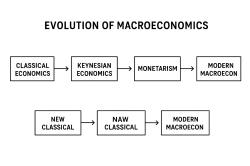Are mutual funds allowed to short-sell?
Mutual funds, as regulated investment vehicles, generally have restrictions on short-selling due to their investment objectives and regulatory guidelines.
Mutual Funds and Short-Selling:
Most traditional mutual funds do not engage in short-selling as part of their investment strategy. Mutual funds are designed to pool investors' money and invest it in a diversified portfolio of securities aligned with their stated objectives, which often involve long-term growth or income generation.
Short-selling involves selling borrowed securities with the aim of buying them back at a lower price in the future, profiting from a price decline. This practice introduces additional risk and complexity that may not align with the goals of many mutual funds.
Regulatory Considerations:
- The Investment Company Act of 1940, which governs mutual funds in the United States, imposes limitations and restrictions on certain investment practices to protect investors. Short-selling is generally limited or prohibited due to the potential for increased volatility and risk.
Exceptions:
Some specialized or alternative mutual funds, such as certain hedge funds or inverse mutual funds, may use derivatives or short-selling strategies as part of their investment approach. These funds have specific objectives and higher-risk profiles compared to traditional mutual funds.
Inverse mutual funds, for instance, aim to achieve the opposite performance of an index or asset class. They might use short-selling or derivative instruments to achieve this inverse correlation.
In summary, while traditional mutual funds typically do not engage in short-selling due to regulatory constraints and their investment objectives focused on long-term growth or income, certain specialized or alternative mutual funds may incorporate short-selling strategies within their investment mandates. Investors should carefully review a fund's prospectus and disclosures to understand its investment strategy, risk profile, and whether short-selling or derivatives are part of its approach.
Mutual funds, as regulated investment vehicles, generally have restrictions on short-selling due to their investment objectives and regulatory guidelines.
Mutual Funds and Short-Selling:
Most traditional mutual funds do not engage in short-selling as part of their investment strategy. Mutual funds are designed to pool investors' money and invest it in a diversified portfolio of securities aligned with their stated objectives, which often involve long-term growth or income generation.
Short-selling involves selling borrowed securities with the aim of buying them back at a lower price in the future, profiting from a price decline. This practice introduces additional risk and complexity that may not align with the goals of many mutual funds.
Regulatory Considerations:
- The Investment Company Act of 1940, which governs mutual funds in the United States, imposes limitations and restrictions on certain investment practices to protect investors. Short-selling is generally limited or prohibited due to the potential for increased volatility and risk.
Exceptions:
Some specialized or alternative mutual funds, such as certain hedge funds or inverse mutual funds, may use derivatives or short-selling strategies as part of their investment approach. These funds have specific objectives and higher-risk profiles compared to traditional mutual funds.
Inverse mutual funds, for instance, aim to achieve the opposite performance of an index or asset class. They might use short-selling or derivative instruments to achieve this inverse correlation.
In summary, while traditional mutual funds typically do not engage in short-selling due to regulatory constraints and their investment objectives focused on long-term growth or income, certain specialized or alternative mutual funds may incorporate short-selling strategies within their investment mandates. Investors should carefully review a fund's prospectus and disclosures to understand its investment strategy, risk profile, and whether short-selling or derivatives are part of its approach.













